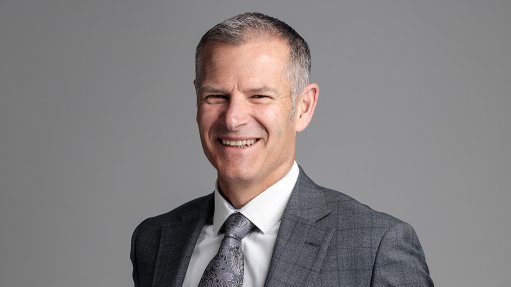Local waste management must be more efficient
It would be difficult for South Africa to introduce taxes as a means to curb waste, as the country’s waste information system was not fully operational and, therefore, difficult to monitor, consulting group COWI waste and contaminated sites VP Torben Kristiansen said on Tuesday.
Addressing delegates at waste management conference WasteCon 2016 in Johannesburg, he noted that reliable waste data did not currently exist, that it was difficult to define urgent interventions and that it would be difficult to monitor the impact of policy changes.
“The integrated waste management plan is sometimes lacking in terms of expanding service delivery and providing acceptable landfill capacity, as well as [in successfully] diverting more waste towards resource recovery,” he said.
Kristiansen pointed out that large parts of South Africa, especially in rural and informal areas, were not receiving enough reliable waste collection services, if at all.
He noted that practically all waste collected is landfilled and that there were many unlicensed or noncompliant landfills in operation in the country.
“This has a significant impact on the environment, especially owing to the dumping of building rubble and garden waste and the lack of control of the disposal of hazardous chemicals,” Kristiansen said, adding that this leads to frequent uncontrolled landfill events such as fires, injuries and leachate overflow.
He further stated that a lack of financial stability was one of the key challenges in the country’s waste sector, noting that waste management services were underfunded, and often dependent on grants, and seemingly unable to plan for capital and operational costs or to ring-fence budgets.
“Many municipalities are unable to collect tipping fees or waste tariffs that are reflective of true costs of capital and operation. Inability or inefficiency in dealing with nonpayment is also a challenge in the sector,” Kristiansen stated, adding that many residents were unable or unwilling to pay a reflective waste management tariff.
To mitigate these challenges, he suggested securing reliable waste statistics and waste data to allow for proper planning, enforcement and to serve as the basis for waste tariffs and waste taxes, providing mechanisms to direct waste properly.
“In other words, know what you are doing.”
Kristiansen noted that establishing firm frameworks for the efficient collection of waste management tariffs that are fully reflective of whole-life costs was key and that it was important to secure sufficient and timeous waste processing, treatment and disposal capacity that was compliant with standards.
“I think South Africa should also expand its waste collection efficiency to include all residents and businesses, including rural and informal areas. The country would also benefit if it implemented measures to increase resource recovery and landfilling diversion, while generation increases,” he said.
Kristiansen also noted that this was vital to build a circular economy.
“Globally, solid waste management has come a long way but we have only just started the circular economy journey. In South Africa, landfill tipping fees are 10 to 20 times less than those of Northern Europe.
“This is a significant barrier to any capital-intensive waste facility. Unless significant changes are made, practically 100% dependency on landfilling in the country will continue,” he said.
Kristiansen noted that building a circular economy required a paradigm shift in the ownership and stewardship of materials and products, pointing out that a circular economy approach also provided new employment opportunities.
“Growth in population and prosperity means that waste generation will grow enormously in South Africa and waste management will only become more difficult,” he said.
He added that the European Union (EU) was pushing for resource efficiency and viable circular economy business models, and that it was, therefore, possible that the current gap between waste management practices in the South Africa and the EU could widen.
Kristiansen pointed out that Europe would buy fewer extracted resources from Africa, and would demand fewer goods from Africa.
“South Africa must be much better organised and prepare for the paradigm shift needed to perform better and future-proof our economy in terms of access to resources and new opportunities for a more resource-efficient economy,” he said.
Comments
Press Office
Announcements
What's On
Subscribe to improve your user experience...
Option 1 (equivalent of R125 a month):
Receive a weekly copy of Creamer Media's Engineering News & Mining Weekly magazine
(print copy for those in South Africa and e-magazine for those outside of South Africa)
Receive daily email newsletters
Access to full search results
Access archive of magazine back copies
Access to Projects in Progress
Access to ONE Research Report of your choice in PDF format
Option 2 (equivalent of R375 a month):
All benefits from Option 1
PLUS
Access to Creamer Media's Research Channel Africa for ALL Research Reports, in PDF format, on various industrial and mining sectors
including Electricity; Water; Energy Transition; Hydrogen; Roads, Rail and Ports; Coal; Gold; Platinum; Battery Metals; etc.
Already a subscriber?
Forgotten your password?
Receive weekly copy of Creamer Media's Engineering News & Mining Weekly magazine (print copy for those in South Africa and e-magazine for those outside of South Africa)
➕
Recieve daily email newsletters
➕
Access to full search results
➕
Access archive of magazine back copies
➕
Access to Projects in Progress
➕
Access to ONE Research Report of your choice in PDF format
RESEARCH CHANNEL AFRICA
R4500 (equivalent of R375 a month)
SUBSCRIBEAll benefits from Option 1
➕
Access to Creamer Media's Research Channel Africa for ALL Research Reports on various industrial and mining sectors, in PDF format, including on:
Electricity
➕
Water
➕
Energy Transition
➕
Hydrogen
➕
Roads, Rail and Ports
➕
Coal
➕
Gold
➕
Platinum
➕
Battery Metals
➕
etc.
Receive all benefits from Option 1 or Option 2 delivered to numerous people at your company
➕
Multiple User names and Passwords for simultaneous log-ins
➕
Intranet integration access to all in your organisation

















